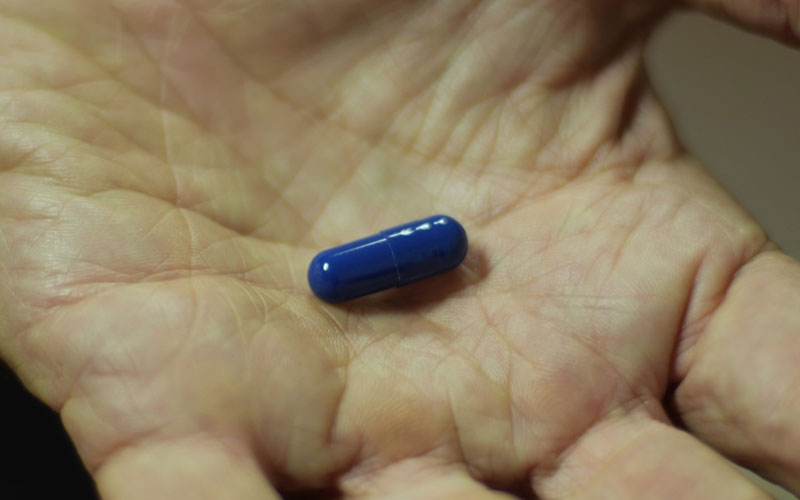This new frontier of psychedelic medicine brings excitement and many more questions.
How will medical professionals work with medicines they once feared and discouraged clients from using?
What role will spirituality play in psychedelic medicine? It’s an important point to consider knowing that people often report profound mystical experiences when consuming entheogens.
Embracing ‘Medicalization’ of Psychedelics
While public acceptance is growing, many hurdles remain beyond regulatory approval. For one, therapists will need to be trained on how to facilitate and integrate a psychedelic session.
A vast underground community of guides, shamans and psychedelic gurus already exists. Maybe they can step up to fill the void, but there will need to be a greater acceptance of traditional Western medicine, including Big Pharma’s role in the advancement of new therapies.
That’s a tough pill to swallow for many people in the psychedelic community, as they view the pharmaceutical industry with a skeptical eye. One expert who has worked closely with some of the trials told Psychedelic Medical News editors that once MDMA gains FDA approval, we’re going to see more big-name pharmaceutical companies get involved in psychedelic-drug development.
As he said, these companies have the resources to test thousands of different analogs in a month, exponentially increasing the possibilities for new treatments targeting a variety of issues.
This “medicalization” of psychedelics is controversial for those of us who have used many of these substances in their raw form. Many people believe that packaging psychedelics as a pharmacological treatment robs the medicines of their true spiritual essence, while lining the pockets of corporate interests and the medical establishment.
But these institutions are also the driving force behind the normalization and eventual approval of these substances. Much like the broader acceptance of cannabis in society, providers and consumers of psychedelics are experiencing a type of liberation that hasn’t been seen since the early days of LSD use.
A Macrodose of Reality
As medical research advances, more possibilities for psychedelics can be realized.
The preliminary research from these trials is used as support by lobbying groups and policymakers to either decriminalize psychedelics in different jurisdictions or to fully legalize them. And the anti-medical-establishment folks are taking note.
In places like Oregon, the decriminalization of psilocybin is opening the door to licensed growers and therapists who are providing much-needed support for trauma survivors and others in need. In Oakland, California, new “churches” are openly using psychedelics for ceremonial use – something that would be much more challenging without the backing and research dollars coming from big-name institutions.
While we understand the apprehension in the underground world of psychedelics, this Brave New World we’re entering requires a macrodose of reality.
There are stakeholders who oppose the medicalization and legalization of these substances. For these factions, the notion of asking a health-care professional for permission to take psychedelics – which have been used for millennia in some cultures – is anathema.
Driven by anti-establishment and anti-capitalism ideologies, perhaps, they view mainstream medicalization of psychedelics as a threat, not an opportunity. Ironically, though, medicalization and decriminalization are enabling these same individuals – and all of us who are interested in psychedelics – to publicly advocate for these substances, launch pro-psychedelics websites and use psychedelics (in some countries) without fear of legal repercussions.
The resistance to the legalization and regulation of psychedelics is reminiscent of how some groups have pushed back against the legalization of cannabis. In the case of basement growers and black-market sellers, legal weed is a direct threat to their livelihood, and there are parallels in the underground world of psychedelics as well.
In my personal experience, underground guides and therapists often charge anywhere from $500 to $2,000-plus for a psychedelic therapy, depending on what’s included in their services. Fancy retreats charge much more. Of course, these practitioners are taking a tremendous risk, and their price tag reflects that reality. However, it’s foolish to think that the underground world is full of pure, altruistic intentions.
Looking Ahead
FDA approvals, decriminalization and full legalization will open doors for experienced, highly skilled practitioners who are currently working in secrecy. It will also help weed out the bad actors. We need to remember that psychedelics are powerful substances with the potential to heal. But in the wrong hands, they can also be used to manipulate and harm people.
Academic programs and psychedelic training centers must play a critical role going forward to ensure that existing licensed therapists are ready for the psychedelic renaissance. For the established guides, they need a pathway to licensure and legitimacy, so they can practice openly and continue to provide services that have already improved the lives of many people.
The New Year brings a lot of hope with organizations like Cybin, Compass Pathways, MAPS and many others reporting progress on their FDA trials. The evolving landscape of psychedelic medicine requires a nuanced approach to balance tradition, spirituality and advancements in medical science.
Featured image courtesy MAPS

